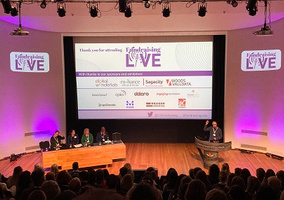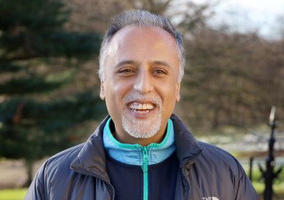Charitable trusts have been challenged on whether they hold grantees to higher standards on ethnic diversity than they do themselves.
At Fundraising Live yesterday, financial education charity Money4YOU’s chief executive AmickyCarol Akiwumi asked representatives from City Bridge Trust and National Lottery Community Fund (NLCF) why they “feel comfortable holding their grantees to higher expectations”.
NLCF deputy director Mark Purvis had said his organisation was looking at funding charities led by Black and Asian people.
But, chairing the panel discussion, Akiwumi said: “Both of your leadership teams are 100% white. I’m just wondering, who’s making the decision?
“So yes, it’s great that you have all of these plans. But if plans for your service users who are quite diverse have been made by people who don't reflect them, how exactly is that congruent and what are you doing about it?”
‘Hypocritical’ for funders to require diverse boards from grantees
Sam Grimmett-Batt, funding director at City Bridge Trust, agreed that funders are the “worst” in terms of equality, diversity and inclusion (EDI).
She said that City Bridge Trust’s board is made up of elected representatives who are not trustees, so they reflect the City of London where they were elected.
City Bridge Trust has appointed new EDI directors, created an EDI action plan, and put other measures in place to improve its diversity, she said.
But Grimmett-Batt agreed that there is much more work to be done in this area.
“All of these things are in their early stages and we need to do so, so much more work,” she said.
“You’re right, it feels really hypocritical to require it from applicants and grantees. I also want to acknowledge that in funding, I think we’re the worst. I think we've got the lowest percentage of people who aren’t white on our senior leadership teams and trustee boards.”
She stated that it should not only be people of colour asking these questions – “it's on us white people to be good allies too.”
‘Recruit staff from the communities we’re seeking to fund’
Purvis said his organisation was “looking at our funding towards organisations that are black or Asian-led and looking at organisations that are disability-led and LGBTQ+ led as well, and thinking about how does our funding make sure that we are reaching them at a national and federal level”.
He said since the Covid-19 pandemic and Black Lives Matter movement, the NLCF has tried to become more purposeful in directing where its money should go.
“What we’ve been trying to do is recruit staff from the communities we’re seeking to fund and try to be more reflective of those communities, but also focus on money going to people with either lived experience or driving things within their local communities, rather than a top-down approach.”
Purvis referenced the NLCF’s strategy review which is currently underway. It is looking to improve in terms of diversity, he confirmed.
“I think a few of the things coming out of the strategy room is very much about how we are respecting those communities”, he said.
Unrestricted funding
Akiwumi also asked the panellists about whether they could be more flexible in terms of providing unrestricted funding or cash for charities' core costs.
Grimmett-Batt stated that City Bridge Trust is currently reviewing its core funding programme and confirmed “we will absolutely be scrutinising that”. Its review will be taking place in the next six to 12 months.
Purvis said: “Lottery money is for all intents and purposes from the lottery public funds. Therefore, we report into Treasury rules on a number of different things, which does sometimes limit our ability to be flexible with our costs.”
However, it is something he agreed NLCF should have a more “comprehensive look at”.
Related articles












